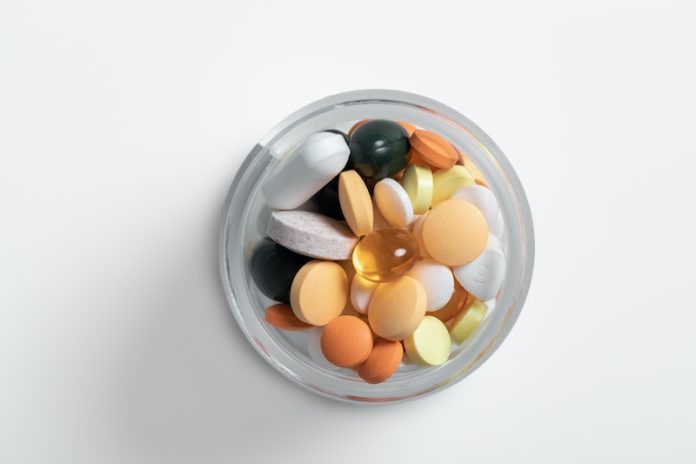
Heart attacks and strokes are leading causes of death worldwide, claiming countless lives each year.
These life-threatening events strike when blood flow to the heart or brain is interrupted, often with devastating consequences.
However, there’s a simple and cost-effective way to significantly reduce the risk of a second heart attack or stroke – taking a daily aspirin.
Despite years of scientific evidence supporting this approach, a recent study reveals that less than half of survivors around the world are following this potentially lifesaving advice.
Aspirin’s Protective Role
Back in the 1970s and 1980s, scientists discovered that taking a daily aspirin could lower the risk of experiencing another heart attack or stroke by about 25%.
This finding was groundbreaking, considering the widespread availability and affordability of aspirin.
In the United States, for instance, you can purchase a month’s supply of baby aspirin for as little as $2 to $8, a small price to pay for a potential lifeline.
Understanding the Mechanism: How Aspirin Works
So, how does aspirin help protect against heart attacks and strokes? When you’ve had one of these events, you’re at a high risk of experiencing another.
Aspirin plays a vital role by thinning your blood, making it more challenging for blood clots to form. Blood clots are like roadblocks in your blood vessels, cutting off the supply of oxygen-rich blood to your heart and other vital organs.
This blockage can lead to another heart attack or stroke, which is why aspirin is so crucial in preventing them.
The Challenge: Low Aspirin Use
Despite the clear benefits of daily aspirin use, many survivors of heart attacks and strokes are not taking it regularly.
The recent study conducted by researchers from Washington University School of Medicine highlights this concerning trend.
While there’s no single answer to why people aren’t taking their daily aspirin, several factors may be contributing to this issue.
Possible Reasons for Low Aspirin Use:
Mixed Messages: There may be confusion or conflicting information about aspirin’s benefits and risks, making people hesitant to use it as a preventive measure.
Limited Healthcare Access: In some regions, access to healthcare services, including obtaining a prescription for aspirin, may be limited, preventing individuals from taking this simple step to protect their health.
Prescription Requirements: In certain countries, aspirin may require a prescription, adding an extra barrier to obtaining it.
Global Disparities in Aspirin Use
The study also shed light on the disparities in aspirin use across different countries and income levels. In low-income countries, only about 16.6% of individuals who should be taking aspirin are actually doing so.
The numbers improve in lower-middle-income countries, where it’s 24.5%. In wealthier nations, like upper-middle-income countries (51.1%) and high-income countries such as the United States (65%), more people are taking daily aspirin.
The Role of Lifestyle Factors
While aspirin is a valuable tool in preventing heart attacks and strokes, it’s important to remember that lifestyle factors, such as smoking, unhealthy eating, and lack of exercise, also contribute significantly to these life-threatening events.
Nevertheless, incorporating a simple daily aspirin regimen could serve as a crucial and affordable measure to complement a healthy lifestyle.
Promoting Aspirin Use: A Call to Action
This recent research, which involved over 125,000 participants from 51 countries and was funded by the National Institutes of Health and the University of Michigan, is not the first to highlight low aspirin use.
A study from 2011 showed similar findings. Therefore, there is a pressing need for greater efforts to encourage people to take their daily aspirin.
The researchers recommend that doctors, pharmacies, and healthcare systems step up their efforts to promote aspirin use.
For instance, clinics that already have effective systems in place for treating diseases like HIV could also prioritize heart health promotion.
The goal is to make the benefits of aspirin more widely known and accessible so that more individuals at risk of heart attacks and strokes can take advantage of this simple and affordable means of protection.
In Conclusion
If you’ve experienced a heart attack or stroke, it’s essential to discuss with your healthcare provider whether a daily aspirin regimen could benefit you.
This humble and cost-effective solution has the potential to safeguard your heart and, quite possibly, save your life. Don’t overlook the power of this simple pill – it could be the lifeline you need to ensure a healthier future.
If you care about health, please read studies about the benefits of low-dose lithium supplements, and what we know about egg intake and heart disease.
For more information about health, please see recent studies about potatoes and high blood pressure, and results showing 6 best breads for people with heart disease.
Follow us on Twitter for more articles about this topic.
Copyright © 2023 Knowridge Science Report. All rights reserved.



